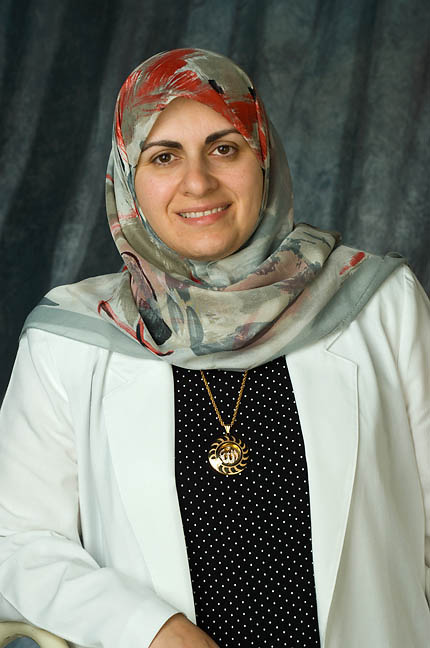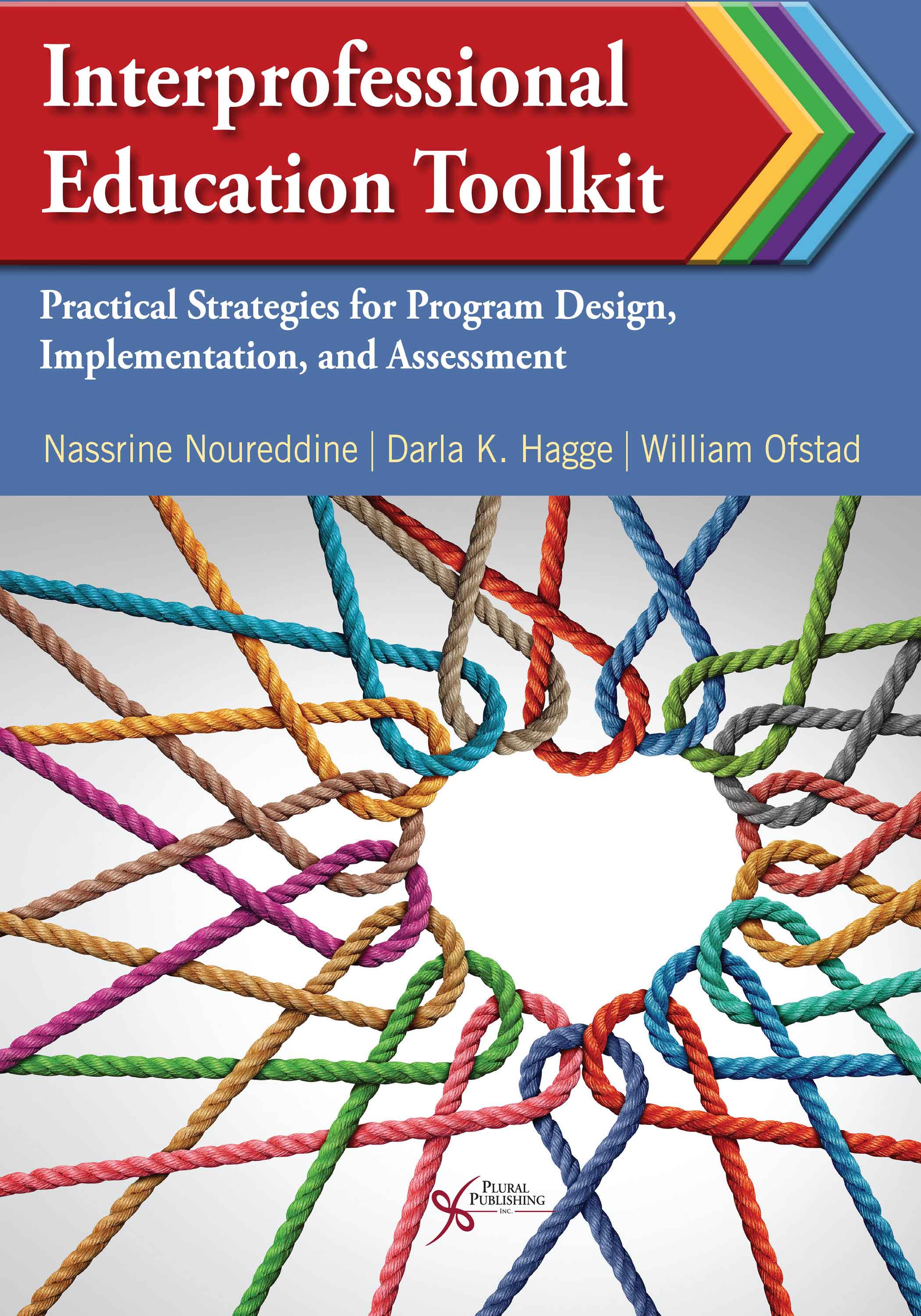
Interprofessional Education Toolkit: Practical Strategies for Program Design, Implementation, and Assessment
First Edition
Nassrine Noureddine, Darla K. Hagge, William Ofstad
Details: 269 pages, B&W, Softcover, 8.5" x 11"
ISBN13: 978-1-63550-217-6
© 2022 | Available
Purchase
Interprofessional education (IPE) and collaborative practice (IPCP) are the keys to improving health, safety, satisfaction and cost in the modern healthcare system. Interprofessional Education Toolkit: Practical Strategies for Program Design, Implementation, and Assessment provides healthcare educators, administrators, and clinicians with a practical, evidence-based manual for leading change. With these keys, we invite you to unlock meaningful collaboration for the next generation of health professionals, supported by an interprofessional collaboration of authors with more than 50 years of combined experience in education, practice, and scholarship in medicine, nursing, pharmacy, physical therapy, speech-language pathology, instructional design, simulation, and online education.
Following a step-by-step approach with supporting resources and examples, this guide offers a structured method for successful interprofessional program design, implementation, and assessment. Readers will explore IPE through the context of accreditation standards, administrative leadership, stakeholder buy-in, faculty and professional development, scholarship, teaching and learning, and curriculum development. Ten toolkits give professionals and educators the resources they need to quickly start new IPE learning experiences.
This book is the go-to manual to fully explore, successfully launch, and advance quality IPE that creates results.
Key Features
- Presents active learning strategies including team-based learning, case-based learning, simulation, and dilemma discussions
- Highlights best practices for virtual and online IPE that help educators overcome major IPE barriers, especially accessibility, scalability and cost
- Offers an abstract, key definitions, and concepts at the beginning of each chapter to set the reader’s expectations
- Utilizes illustrations and tables to help clarify and expand on key concepts, enabling readers to more easily understand and apply material
- Includes comprehensive appendices on available resources for IPE and IPCP
- Provides step-by-step checklists, tables and figures on how to build IPE using didactic, simulation, online, and experiential learning andragogies
- Explores techniques to identify and reduce interdisciplinary biases, stereotypes, and prejudices, all barriers to dual professional identity and successful teaming
Toolkits to Quick Start IPE Learning Experiences
Toolkit #1. SBAR Communication for IPE
Toolkit #2. IPE Ethical Dilemma Discussion
Toolkit #3. IPE for Dysphagia: Swallow Screen and Evaluation
Toolkit #4. IPE for Provider Self-Compassion
Toolkit #5. IPE in Senior Living Settings
Toolkit #6. IPE for Palliative Care
Toolkit #7. IPE in a Community Health Clinic
Toolkit #8. IPE Stroke and Neuro Program
Toolkit #9. IPE for Prosthetic Checkout: Amputation Evaluation and Rehabilitation
Toolkit #10. IPE Student Organizations
From the Forewords
“This timely and thorough IPE Toolkit offers practical strategies for implementing and improving IPE for all health professions educational institutions. It provides historical and pedagogical background and practical advice in several important areas. This work is an important practical contribution to advance the field of IPE. It should move us closer to the time when the public can be confident that all health professionals will have teamwork and interprofessional collaboration as core competencies. This will move us closer to the kind of transformed health care system we all want and need.”
—George Thibault, MD
Immediate past president of the Josiah Macy Jr. Foundation
Previously served in the following capacities:
The Vice President of Clinical Affairs at Partners Healthcare System in Boston
Director of the Academy at Harvard Medical School
Chairman of the Board of the MGH Institute of Health Professions
The President’s White House Fellows Commission
Chaired the Special Medical Advisory Group for the Department of Veteran’s Affairs
“The IPE Toolkit will be an important resource for newly formed interprofessional faculty teams to develop, implement, and evaluate their IPE curricula. The authors have provided a historical view of IPE and IPCP and the rational for why IPE is important. The book includes 10 chapters and 10 IPE Toolkits. The chapters provide content on IPE ranging from the historical perspective to the need to evaluate learners and assess IPE programs. The subsequent IPE Toolkits are very practical in nature and include forms, checklists, and approaches to IPE in various settings, or clinical diagnoses, respectively (e.g., Senior Living Settings, Palliative Care, dysphagia-swallow screen, prosthetic checkout). The authors are providing a sequential approach to developing IPE activities. Faculty engaged in IPE will have a comprehensive resource to guide the development of IPE activities. The authors of this book have the knowledge, experience, and enthusiasm to help others develop a successful IPE Program.”
—Brenda K. Zierler, PhD, RN, FAAN
Professor, Biobehavioral Nursing and Health Informatics
University of Washington, School of Nursing
Director of Research and Faculty Development, UW Center for Health Sciences Interprofessional Education, Research and Practice
Associate Editor, Journal of Interprofessional Care
“To facilitate the healthcare transformation towards IPECP, the educators, researchers, administrators, and practitioners require and could significantly benefit from such a comprehensive IPECP Toolkits offered in this book. Different chapters of this book have utilized a practical step-by-step and evidence-based approach to help the readership to explore, develop, implement/advance, and evaluate their IPECP programs. Additionally, this book by providing supporting resources and examples can serve as a go-to manual to learn about and apply IPECP from accreditation standards to online learning and professional development opportunities.”
—Hossein Khalili, BScN, MScN, PhD, FNAP
Director, UW Center for Interprofessional Practice and Education (UW CIPE), University of Wisconsin-Madison
Adjunct Research Professor, Western University
Co-Founding President, Interprofessional Research.Global (IPR.Global)
Leadership Team, Interprofessional.Global
Board Member, Canadian Interprofessional Health Collaborative (CIHC)
Associate Editor, Journal of Interprofessional Care
“The authors have achieved a difficult task in that they have prepared a text that will meet novice as well as experienced interprofessional education (IPE) providers with content and materials that will support and enhance their IPE programs. Programs being newly developed throughout the world will benefit from the historical evolution of IPE in the U.S. and in other countries. Such information will help with informing administrators about the importance and value of investing resources in IPE. Likewise, the same information will prove valuable for IPE faculty development across the health professions, while emphasizing the vision for and benefits of interprofessional collaborative practice (ICP). The authors’ come from institutions which were early adopters and strong advocates for IPE. They share a number of their own IPE educational experiences as well as those developed with collaborators in a Toolkit of 10 IPE resources. Toolkit#1 - TeamSTEPPS - SBAR Communication for IPE and Toolkit #2 - IPE Ethical Dilemma Discussion offer valuable foundational instruction for students in all health professions. Toolkits #3 through #9 – cover a broad range of clinical conditions as well as practice environments that offer examples for a wide variety of health professional students on the opportunities for and value of ICP. Finally, Toolkit#10 - IPE Student Organizations exposes health professional students to organizations committed to the advancement of IPE and ICP, should they have a strong interest in joining and advancing the field . The authors state they have designed the Toolkit to help with Program Design, Implementation, and Assessment. I believe they have met their goal and that many programs, regardless of the level of development of their IPE program, will benefit from use or adaptation of the Toolkit offerings.”
—Peter H. Vlasses, PharmD, DSc (Hon.), FCCP
Executive Director Emeritus, Accreditation Council for Pharmacy Education (ACPE)
Convener, Health Professions Accreditors Collaborative (HPAC)
Reviews
“…easy-to-read and flows well covering the history of IPE to curriculum design all the way to the ‘how-tos’ of an IPE Toolkit! The Toolkit is easy to understand and well thought out. …The theme of patient safety is woven well throughout the book in addition to all of the IPE terms.”
—Susan Korek, MAED
Program Manager for Academic Affairs & Interprofessioal Education, School of Pharmacy, Medical College of Wisconsin
“This book is well-developed, representative of current evidence, and flows well from beginning to end. It was easy to read and pulled the reader up onto the same platform (soap box) as authors sounding the call for interprofessional collaborative practice beginning with interprofessional education. Justification was strong, sound, and convincing. The Tool Kits (templates) provide and easy-to-use structure for the development of IPE and IPCP projects. Once readers are hooked, the templates will make it easy to organize programs.”
—Margaret Bates, OTD, OTR
Clinical Assistant Professor, Northeastern State University Occupational Therapy Program
“This book does an excellent job of laying out the steps for beginning a successful IPE program - from gathering support to designing and assessing curriculum. Toolkits are provided to support implementation of learning experiences.”
—Juliana O. Miller, MS, CCC-SLP
Director of External Practicum and Clinical Instructor, Communication Sciences and Disorders, University of South Carolina
“…Overall, strengths of the book are that it is thorough, relevant, and timely to today’s healthcare issues. It provides excellent information on the history, models, theories that support IPE/IPCP, as well as practical information, suggestions, and ideas to guide implementation of a variety of types of learning activities for different levels of learners."
—Theresa Estrem, PhD, CCC-SLP
Professor, Communication Sciences and Disorders, St. Cloud State University
“The book collects the work of IPE pioneers and leaders in one volume for easy accessibility by educators and healthcare professionals. …The checklists and toolkits are excellent resources for building authentic and meaningful IPE experiences.”
—Melissa Johnson, PhD, CCC-SLP
Associate Professor, Department of Communication Sciences and Disorders, Nazareth College
Preface
Contributors
Reviewers
Chapter 1. Why IPE? Why Now?
Nassrine Noureddine, William Ofstad, and Darla K. Hagge
Chapter 2. History of Interprofessional Education
Nassrine Noureddine and Darla K. Hagge
Chapter 3. Leading the Change
Nassrine Noureddine, Darla K. Hagge, and, William Ofstad
Chapter 4. Interdisciplinary Bias and Dual Professional Identity in IPE
Nassrine Noureddine and Darla K. Hagge
Chapter 5. Shared Understanding of the IPE Team
Nassrine Noureddine, Darla K. Hagge, and William Ofstad
Chapter 6. Getting Started with IPE Curriculum Design
William Ofstad, Nassrine Noureddine, Darla Hagge, and Wendy Duncan
Chapter 7. Assessing an IPE Curriculum: An Overview
William Ofstad, Nassrine Noureddine, and Darla K. Hagge
Chapter 8. Creating Effective, Evidence-Based and Equitable Online IPE
Zehra Aksu, Nassrine Noureddine, Sharyn D. Gardner, and Crystal Sims
Chapter 9. A Call to Action for Advancing IPE
Nassrine Noureddine and Darla Hagge
Chapter 10. Let Toolkits Be Your Quick Start to IPE Learning Experiences
Nassrine Noureddine, William Ofstad, and Darla K. Hagge
Toolkit #1. SBAR Communication for IPE
Nassrine Noureddine, William Ofstad, and Darla K. Hagge
Toolkit #2. IPE Ethical Dilemma Discussion
Luma Munjy and William Ofstad
Toolkit #3. IPE for Dysphagia: Swallow Screen and Evaluation
Nassrine Noureddine and Darla K. Hagge
Toolkit #4. IPE for Provider Self-Compassion
Nassrine Noureddine and Pouria Kashkouli
Toolkit #5. IPE in Senior Living Settings
Bronwyn E. Fields, Nassrine Noureddine, and Darla K. Hagge
Toolkit #6. IPE on Palliative Care
Pouria Kashkouli, Brittany Hagge-Langevin, and Darla K. Hagge
Toolkit #7. IPE in a Community Health Clinic
Nassrine Noureddine and Darla K. Hagge
Toolkit #8. IPE Stroke and Neuro Program
Nassrine Noureddine and Darla K. Hagge
Toolkit # 9. IPE for Prosthetic Checkout: Amputation Evaluation and Rehabilitation
Toran D. MacLeod, Nassrine Noureddine, and Darla K. Hagge
Toolkit #10. IPE Student Organizations
Anna T. Thut, Jane Chon, Darla K. Hagge, and Nassrine Noureddine
Index
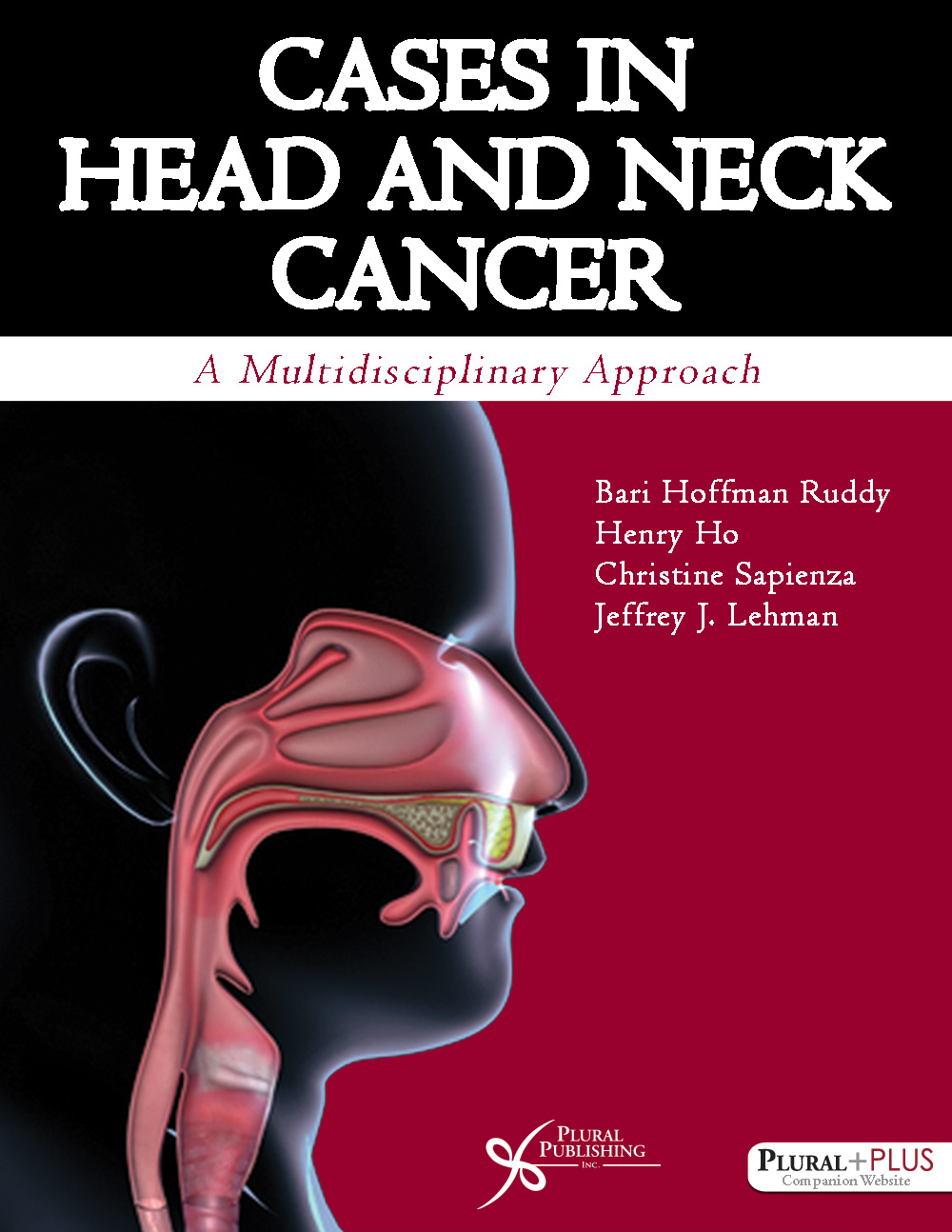
Cases in Head and Neck Cancer: A Multidisciplinary Approach
First Edition
Bari Hoffman, Henry Ho, Christine Sapienza, Jeffrey J. Lehman
Details: 304 pages, Full Color, Hardcover, 8.5" x 11"
ISBN13: 978-1-59756-715-2
© 2016 | Available
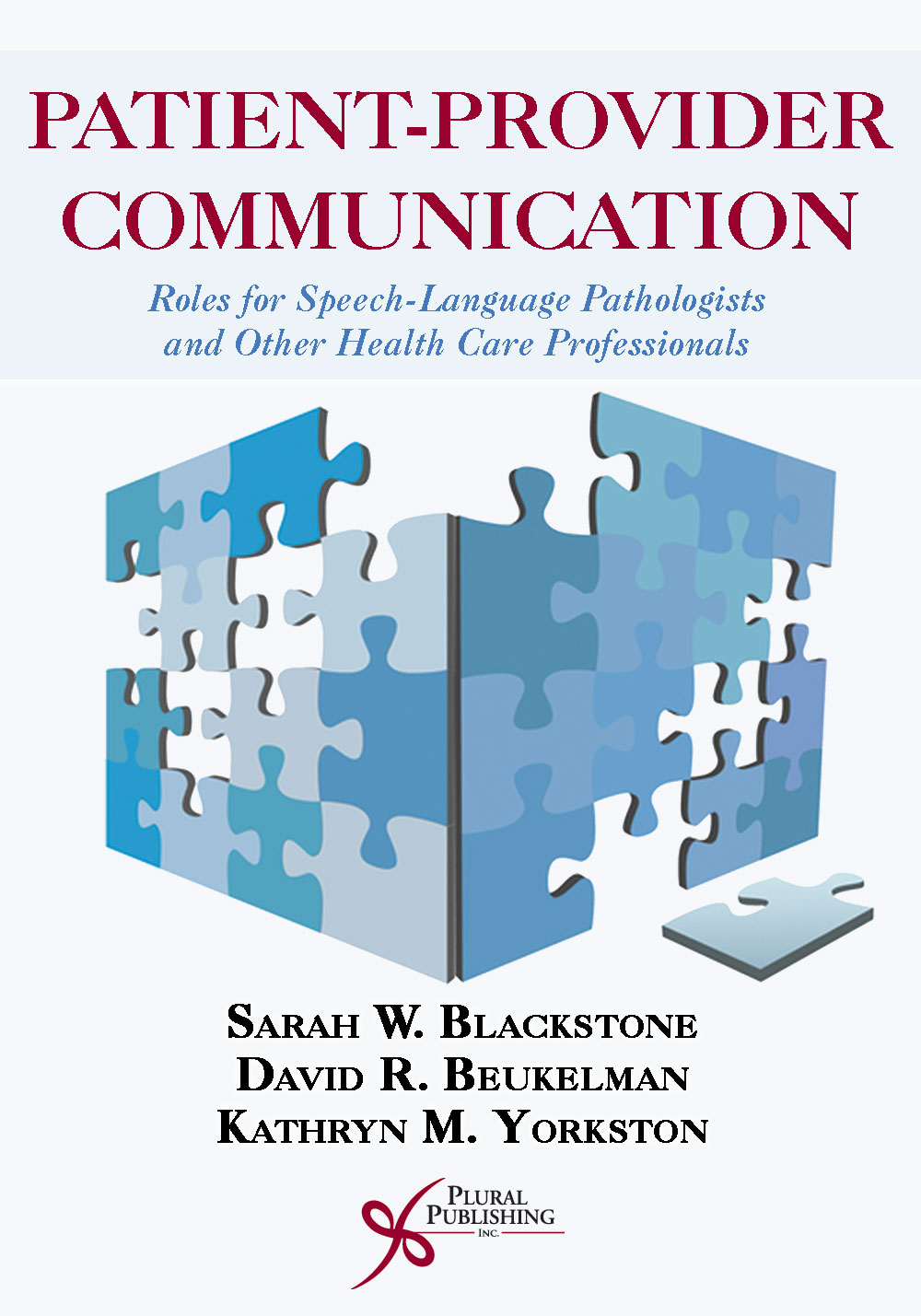
Patient-Provider Communication: Roles for Speech-Language Pathologists and Other Health Care Professionals
First Edition
Sarah W. Blackstone, David R. Beukelman, Kathryn M. Yorkston
Details: 352 pages, B&W, Softcover, 7" x 10"
ISBN13: 978-1-59756-574-5
© 2015 | Available
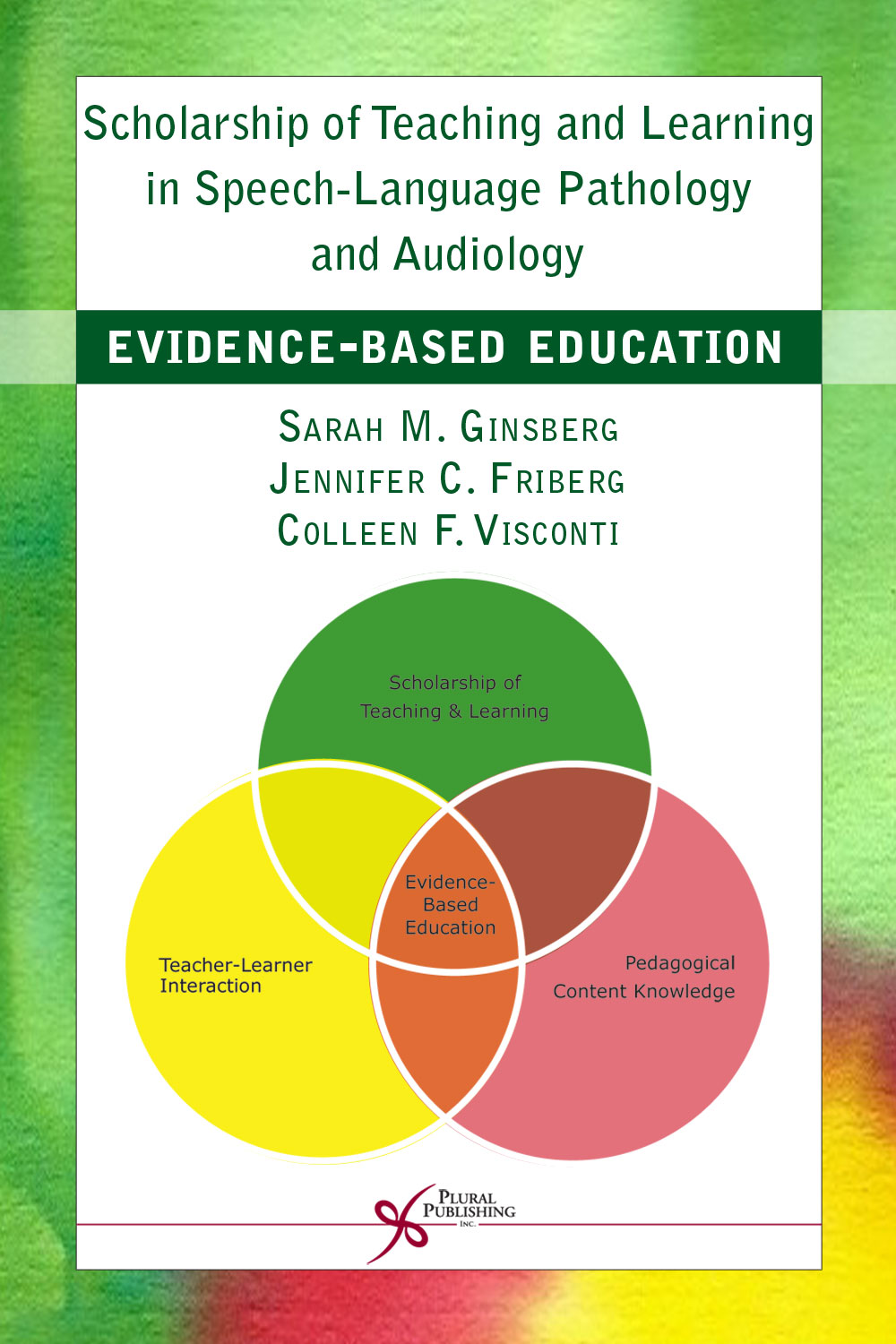
Scholarship of Teaching and Learning in Speech-Language Pathology and Audiology: Evidence-Based Education
First Edition
Sarah M. Ginsberg, Jennifer C. Friberg, Colleen F. Visconti
Details: 272 pages, B&W, Softcover, 6" x 9"
ISBN13: 978-1-59756-429-8
© 2012 | Available
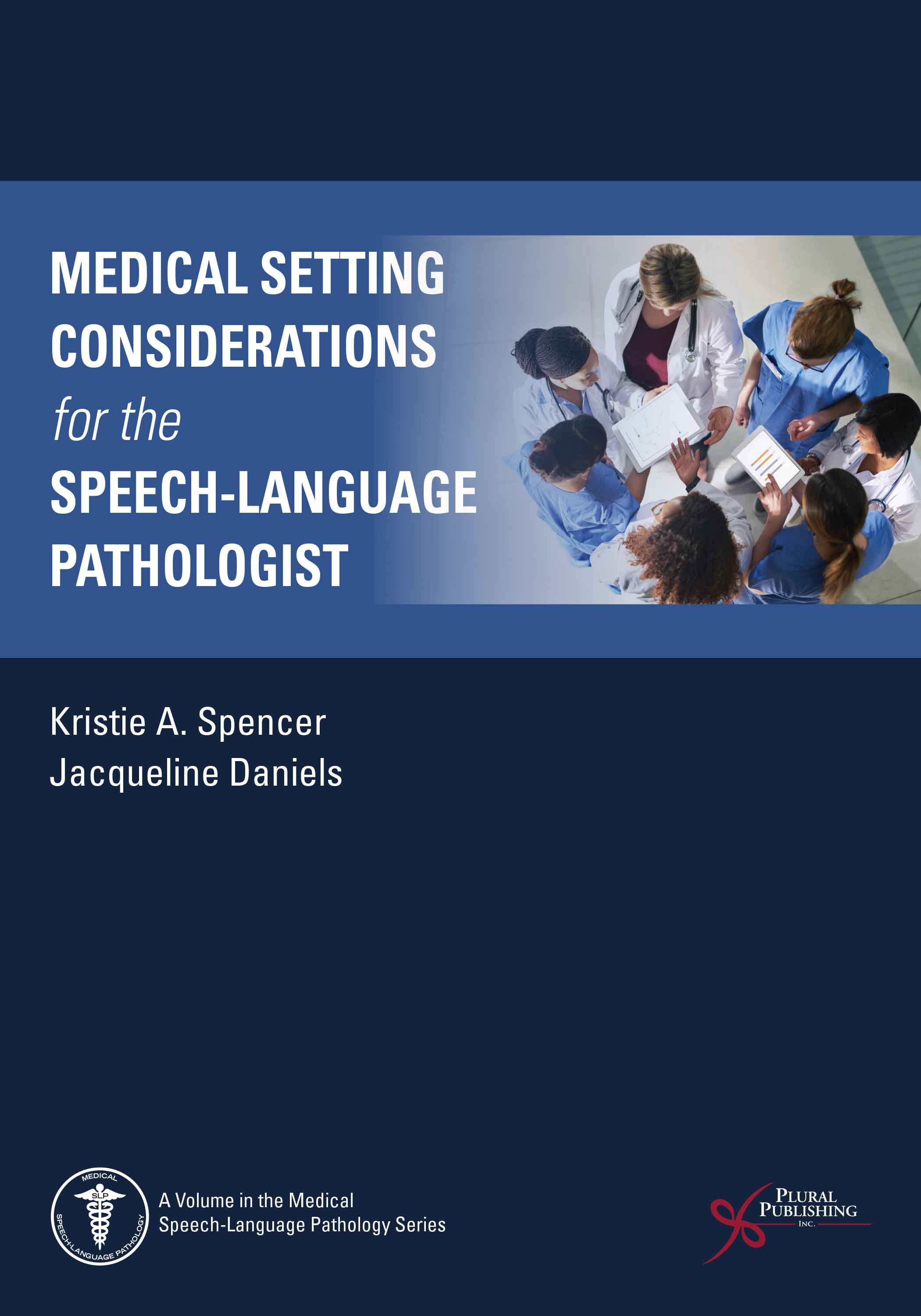
Medical Setting Considerations for the Speech-Language Pathologist
Kristie A. Spencer, Jacqueline Daniels
Details: 154 pages, B&W, Softcover, 7" x 10"
ISBN13: 978-1-63550-103-2
© 2020 | Available
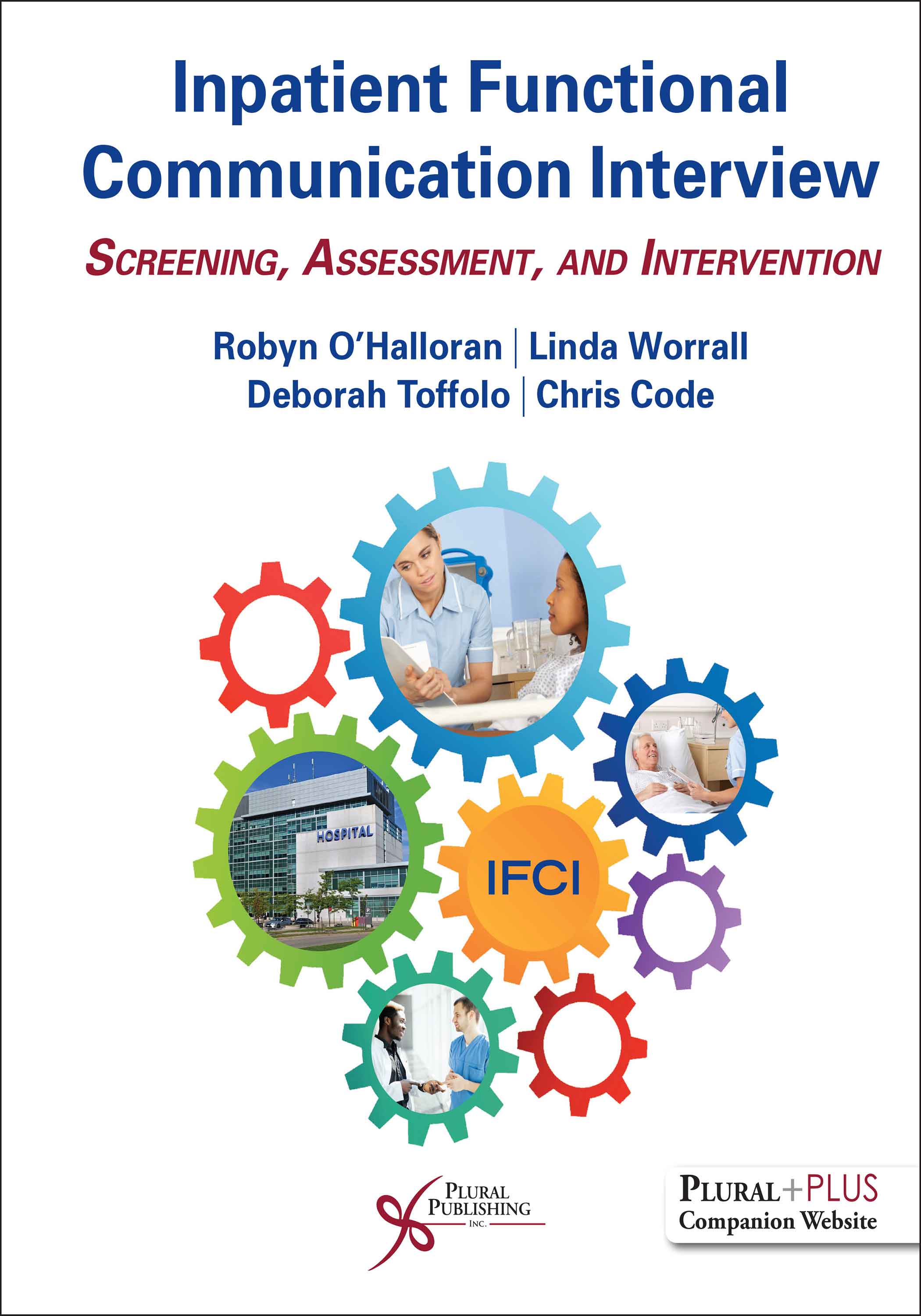
Inpatient Functional Communication Interview: Screening, Assessment, and Intervention
First Edition
Robyn O'Halloran, Linda Worrall, Deborah Toffolo, Chris Code
Details: 170 pages, B&W, Spiral Bound, 8.5" x 11"
ISBN13: 978-1-63550172-8
© 2020 | Available
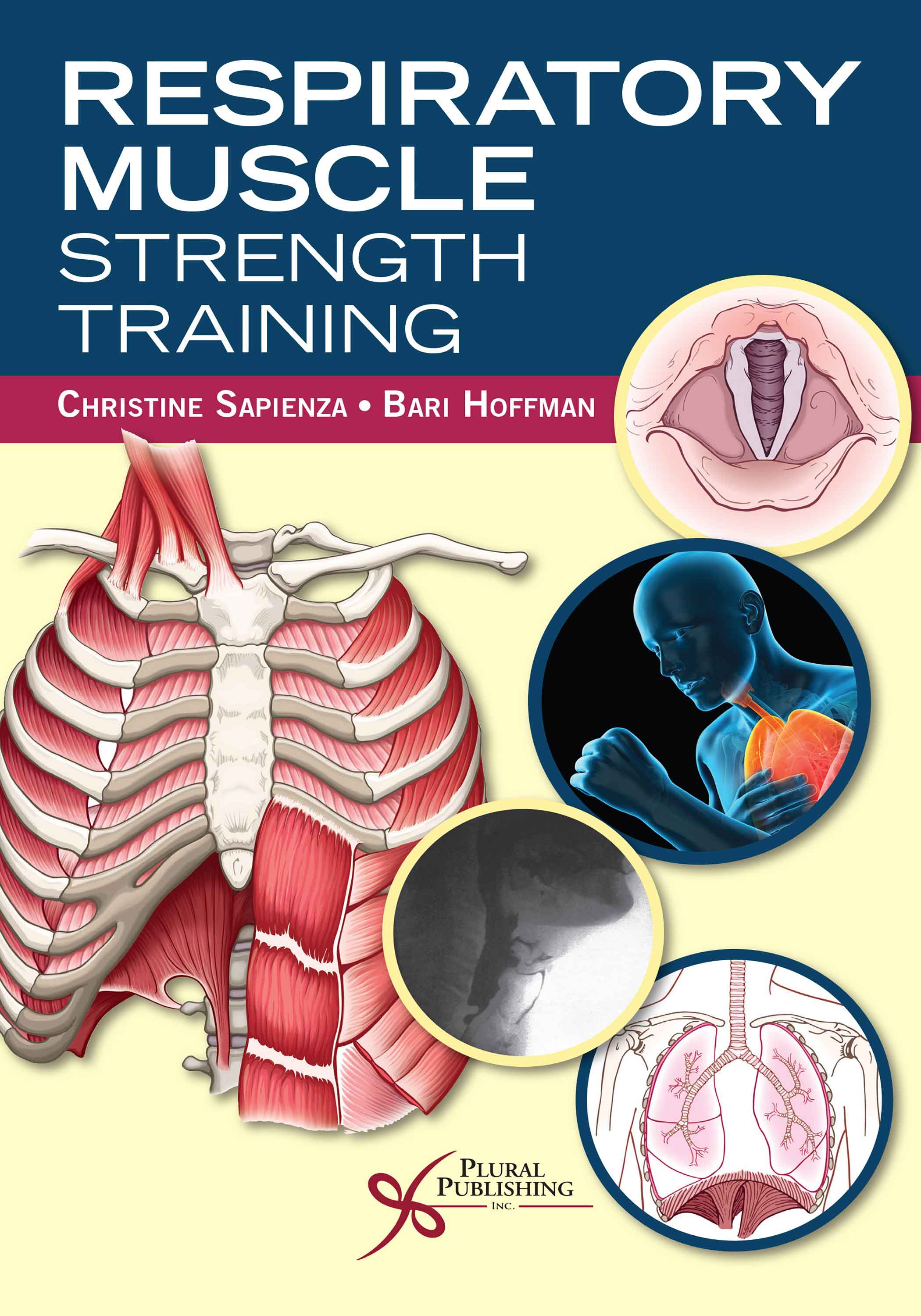
Respiratory Muscle Strength Training
First Edition
Christine Sapienza, Bari Hoffman
Details: 279 pages, B&W, Softcover, 6" x 9"
ISBN13: 978-1-63550-257-2
© 2021 | Available
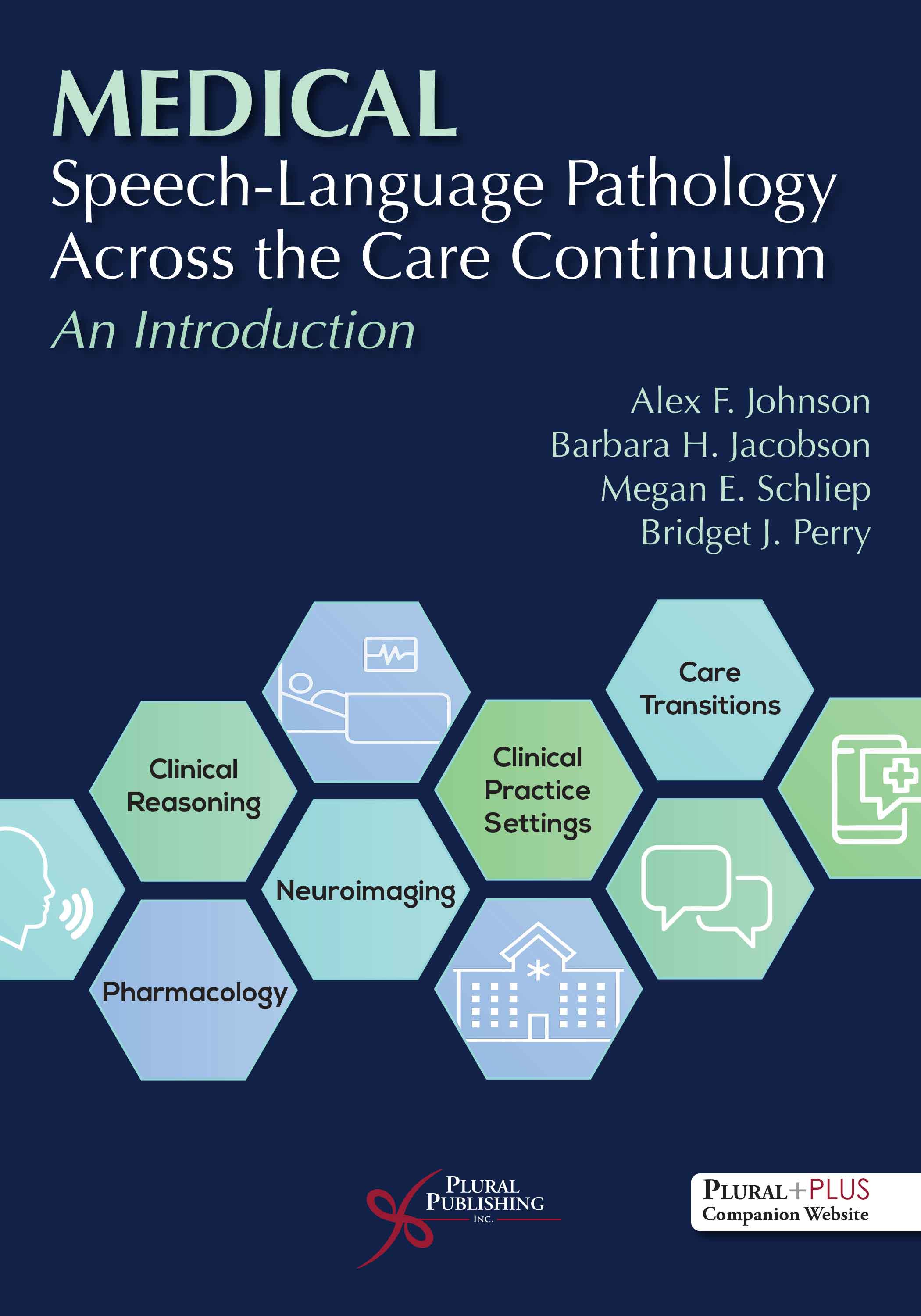
Medical Speech-Language Pathology Across the Care Continuum: An Introduction
First Edition
Alex F. Johnson, Barbara H. Jacobson, Megan E. Schliep, Bridget J. Perry
Details: 378 pages, Full Color, Softcover, 7" x 10"
ISBN13: 978-1-63550-268-8
© 2024 | Available
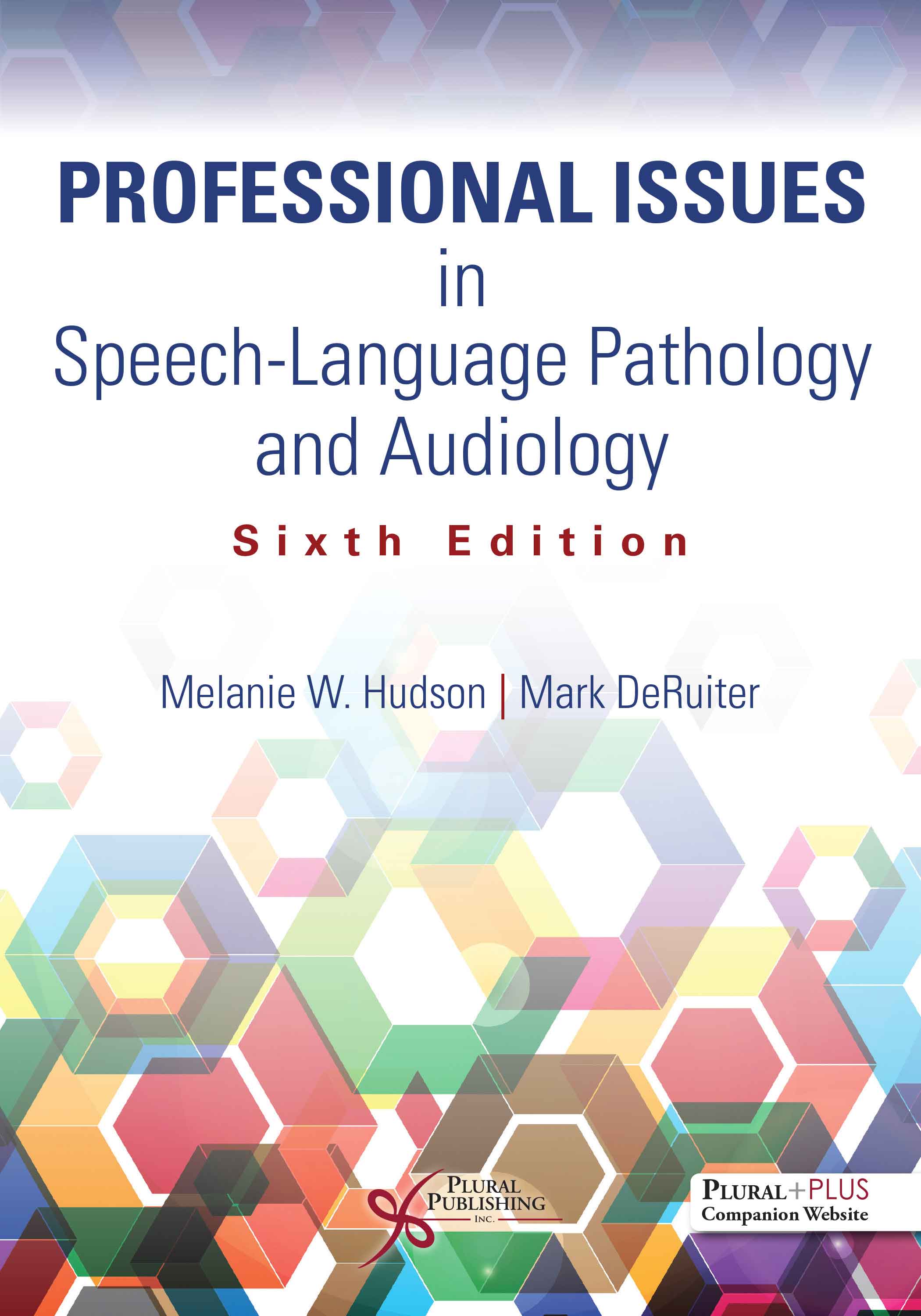
Professional Issues in Speech-Language Pathology and Audiology
Sixth Edition
Melanie W. Hudson, Mark DeRuiter
Details: 541 pages, Two-Color, Softcover, 7" x 10"
ISBN13: 978-1-63550-655-6
© 2025 | Available

